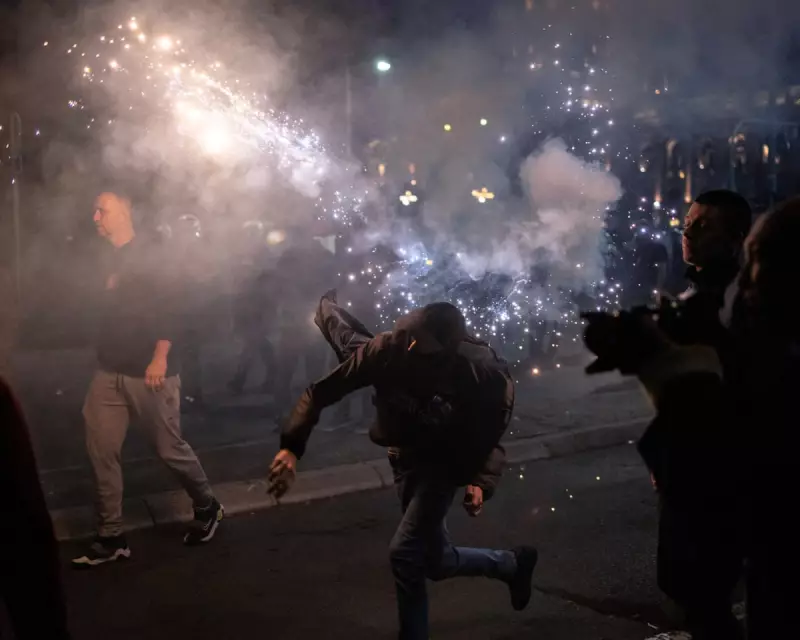
The heart of Serbia's capital transformed into a violent arena on Saturday as tens of thousands of anti-government demonstrators faced off against President Aleksandar Vučić's loyalists in some of the most severe political clashes Belgrade has witnessed in recent years.
City Centre Descends Into Chaos
What began as a peaceful protest demanding the resignation of the controversial president quickly escalated into running battles near the historic National Assembly building. Riot police found themselves overwhelmed as the two opposing groups breached security cordons and engaged in direct confrontation.
Protesters, many wearing masks and helmets, chanted "Vučić thief!" and "Resign!" while government supporters responded with their own pro-Vučić slogans. The air filled with the sound of breaking glass, smoke flares, and the distinctive crack of police stun grenades.
Injuries Mount as Police Struggle for Control
Medical services reported treating dozens of injured individuals from both sides, including several police officers caught in the crossfire. Ambulances struggled to reach the wounded through the chaotic scenes as makeshift medical stations appeared on side streets.
Eyewitness accounts describe shocking scenes of violence:
- Protesters being beaten with flagpoles and metal bars
- Multiple arrests as police attempted to separate warring factions
- Vehicles damaged and shop windows shattered in the violence
- Public transport brought to a complete standstill
Deep Political Divisions Surface
The clashes represent the physical manifestation of Serbia's deep political polarization. President Vučić, often described as an autocratic leader by western observers, faces growing opposition from citizens frustrated with his government's policies and Serbia's direction.
"This isn't just a protest - it's a battle for the soul of our country," one university student told reporters before being pushed back by advancing police lines.
International Concern Grows
The European Union has expressed serious concern about the deteriorating situation in one of its candidate countries. The violence threatens to undermine Serbia's EU accession talks and raises questions about political stability in the Balkan region.
As night fell on the Serbian capital, the sounds of conflict gradually gave way to an uneasy calm, but the underlying tensions that sparked Saturday's violence remain very much alive. Both sides have vowed to continue their struggle, setting the stage for further confrontation in the days ahead.





